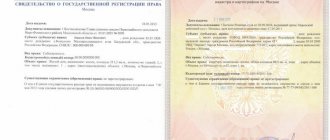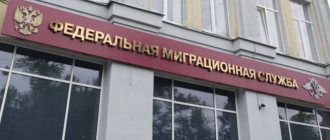The Constitutional Court of the Russian Federation demanded changes to the settlement system
Previously, we talked about the trial, which led to the fact that the Constitutional Court of the Russian Federation declared paragraph. 2 clause 40 of the RF PP No. 354.
The Government of the Russian Federation, fulfilling the requirements of the Constitutional Court of the Russian Federation to introduce changes to the methodology for calculating heating fees, issued Decree of the Government of the Russian Federation dated December 28, 2018 No. 1708.
Our regular expert, practicing lawyer Elena Shereshovets, in the new issue of the online magazine “ZHUH: Dreams Come True,” spoke about the new rules for calculating fees for heat supply in apartments where an individual heating system is installed in accordance with the established procedure.
Paragraph 2 of clause 40 of Rules No. 354 was declared invalid
Disputes between the owners who dismantled the central heating pipes in the apartments and installed autonomous heating systems, and the heat supply contractors, were resolved in favor of the service providers before the decision of the Constitutional Court of the Russian Federation.
However, the Constitutional Court of the Russian Federation expressed the exact opposite opinion. The ruling of the Constitutional Court of the Russian Federation came into force from the moment it was issued and cannot be appealed. And recognized as inconsistent with the Constitution of the Russian Federation, paragraph. 2 clause 40 of the RF PP No. 354 does not need to be canceled further, since it automatically became invalid from that moment.
As Elena Shereshovets noted, all previously established judicial practice is no longer valid, since the Constitutional Court of the Russian Federation, by changing the provisions of the legislation, changed the rules of the game. Let's talk about the two main postulates of Resolution No. 46-P.
Why did the Constitutional Court of the Russian Federation demand a review of the heating billing system?
274129
Pros and cons of autonomous heating in an apartment building
Before you decide to make such drastic and expensive changes, it is worth studying the advantages and disadvantages of a custom heating system. The advantages include:
- Saving money. To maintain a comfortable climate in an apartment, much less energy is required than with centralized heating. Some owners of individual systems claim that heating costs are reduced by about seven times. And this is understandable, because they no longer have to pay for losses in the heating main.
- Independence from utilities and the established period of the heating season. If necessary, the living space can be heated in the off-season, when there are strong temperature changes outside.
- People have the opportunity to set the temperature in their rooms at their own discretion. Modern equipment allows you to adjust the settings so that, for example, one temperature is maintained at night, and another during the day, when no one is home. In addition, some systems are capable of responding to changing weather conditions.
- Residents have the right to install a double-circuit boiler and independently provide themselves with hot water. This will help get rid of the problems associated with summer shutdowns of hot water supply.
- Since there is no possibility of water hammer in the pipeline, you can choose batteries of any type.
The main disadvantage is that you will have to spend money on such equipment. The cost of installing individual heating in an apartment ranges from 50,000 to 200,000 rubles. In addition, residents will have to worry about coordinating the procedure, installing the system, and arranging a suitable exhaust duct
Owners must take full responsibility for the safe operation of the equipment. But, despite this, specialized organizations have the right to control the installation process; their representatives will have to be allowed to inspect.
Thermal energy consumption is divided into individual and general house consumption
The first postulate of Resolution No. 46-P, which you should pay attention to, establishes the procedure for calculating fees for utility services for heat supply. Since an apartment building is a three-dimensional building system that includes both premises and common property, its operation involves not only heating costs inside an individual apartment, but also costs for general house needs.
The Constitutional Court of the Russian Federation also agreed with this, noting in paragraph 1.1 No. 46-P that disconnecting individual premises of the house from the centralized heating system does not stop the owner of such premises from consuming thermal energy for general house needs.
Paragraph 2 of clause 40 of RF PP No. 354 obligated consumers to pay for heating services in aggregate, without dividing between indoor consumption and consumption for the maintenance of common property. The Constitutional Court of the Russian Federation declared it invalid (paragraph 3, paragraph 5, No. 46-P).
Now a consumer who has turned off central heating in an apartment may not pay for it indoors, but must pay for heating spent on maintaining the common property of the owners.
Why is even the only apartment heat meter in an apartment building a calculated one?
239549
How will they help?
Thus, citizens will be reimbursed at the expense of local budgets for part of the costs of providing electricity to the housing stock for heating, hot water supply and cooking - in the amount of 20% of the cost of the work performed, but not more than 40 basic units (currently 1080 rubles). With the estimated cost of electricity supply being 5 thousand rubles, the reimbursement will be about 1 thousand rubles. However, the cost of work may vary depending on the size of the house and the equipment installed.
Related article Is it true that all gas stoves and water heaters will be replaced with electric ones?
Electrical supply refers to the design and construction of in-house power supply systems, the purchase of equipment and materials necessary to use electrical energy for heating, hot water supply and cooking (electric convector, electric boiler, electric water heater, electric stove, etc.).
This document applies to those who live in single-family and semi-detached houses. Reimbursement of part of the costs is made once for performing work on the electrical supply of one residential building. If a person owns several, the work on only one of them will be reimbursed according to the owner’s decision.
Expenses will be reimbursed only after the work has been completed and citizens have submitted the necessary documents to the executive committee (certificate of work completed under an agreement with a specialized organization, documents confirming the purchase of equipment and materials).
The calculation formulas provide for zero thermal energy consumption
On January 1, 2021, changes to RF PP No. 354 introduced by RF PP No. 1708 came into effect. In the rules for calculating heating fees, an option appeared when the volume of thermal energy consumed in the room is zero.
The volume of individual consumption – Vi – is equal to zero in the case when there are no heating devices in this room at all or when individual apartment sources of thermal energy are used.
But the size of the heating fee consists not only of individual consumption within the owner’s premises. For example, the formula for an apartment building that is not equipped with a common building meter and in which payment is made during the heating season:
Payment consists of two parts:
1. For the volume consumed indoors.
2. For the amount spent on general house needs.
All other formulas - for calculating fees in a house with shared ownership or paying fees throughout the year in equal shares - follow the same logic. Consequently, the owner, even having abandoned centralized heating inside his apartment, must pay for the thermal energy supplied to maintain the common property of the apartment building.
Electric heating system: required package of documents
- The first step is to contact the Distribution Zone with a package of documents in order to obtain permission to connect the system to the electrical network. The package consists of the following documents: an application from the owner of the property, a document certifying payment for receipt of technical specifications for the installation of an electric heating boiler, ownership of the facility where the work is planned, the original passport;
- Next, the existing technical solution for the project is coordinated with the Distribution Zone;
- Only now can you begin installing the selected electric boiler. You can do the work yourself or with the help of experienced specialists;
- An agreement is concluded which will contain information regarding the new tariff for the use of electricity;
- The final stage involves calling a RES employee who will seal the new electric meter.
IMPORTANT! If you install 3-mode equipment for metering electricity consumption, this will allow you to pay for electricity on more favorable terms, thanks to which you can save a lot when operating the device installed in the heating system.
If work aimed at installing a heating system is carried out unauthorized, then if violations are detected, not only a fine is provided, the amount of which is determined individually in each region, but also the facility will be disconnected from the electricity and gas supply. All this is unnecessary and significant costs, so you shouldn’t save money; carry out all the work taking into account the legality, this will allow you not to worry in the future and feel free to use the heating system in the cold season.
Changes to the heating system must be carried out in accordance with the procedure established by law
The second postulate No. 46-P relates to the very process of rebuilding the indoor heating system. The Constitutional Court of the Russian Federation considers it necessary to proceed from the fact that the transition to individual heating sources requires compliance with regulatory requirements for the procedure for restructuring the system.
These requirements are set out in Chap. 4 of the Housing Code of the Russian Federation, Federal Law dated July 27, 2010 No. 190-FZ and Decree of the Government of the Russian Federation dated July 5, 2018 No. 787. The specified legal acts provide for the development of technical documentation for reconstruction and its coordination with the local government body. Therefore, when switching to an individual heating system, the owner of the premises must comply with legal requirements.
6 important changes for MA in legislation in December 2018
238604
Transition to the “3 kopecks” tariff
To switch to a tariff of 3.35 kopecks, you need to put the house into operation at the BTI. I wrote the necessary application in parallel with the application for an electrical inspection at the energy supervision office. BTI papers took a little longer to make. When I received all the documents in my hands, I immediately ran to register, and then to Energosbyt. He showed that the house was registered and that I was already registered in it. And here it is - the long-awaited reduced heating tariff!
I wrote an application for technical conditions at the end of January or beginning of February 2021. On November 1st I received a reduced rate. Roughly speaking, the process took 9 months. But I think that if you want, you can do it in 2 months - I was in no hurry, since winter was far away. The expenses amounted to approximately 1,500 rubles - this does not take into account my work with my father.
Remember
Management organizations that provide heat supply utilities must take into account that:
Calculation of heating fees in an apartment building from January 1, 2019 must be carried out in accordance with the requirements of RF Regulation No. 1708.
All court decisions on issues of payment for heating that do not coincide with the conclusions of No. 46-P will be reviewed at the will of the interested parties.
If the owner has reconstructed the apartment by installing autonomous heating and received all permits, then he is charged only for the thermal energy supplied to the house for the maintenance of the common property.
Who's not on the list
Subsidies will be received by those citizens who will be included in the lists formed by local authorities.
Refunds are not provided:
- if the house is provided with a centralized gas supply and (or) heat supply and (or) is located in zones with the right to resettlement and in zones of subsequent resettlement;
- if local authorities have decided to transfer the house from centralized heating and hot water supply to individual ones when optimizing heat supply schemes;
- if a citizen has previously gasified his house using budget funds and (or) preferential loans from Belarusbank.
The decree comes into force on July 17, 2021.







